I'm trying to develop a Terraform provider but I have a problem of the first request body. Here is the code:
type Body struct {
id string
}
func resourceServerCreate(d *schema.ResourceData, m interface{}) error {
key := d.Get("key").(string)
token := d.Get("token").(string)
workspace_name := d.Get("workspace_name").(string)
board_name := d.Get("board_name").(string)
resp, err := http.Post("https://api.trello.com/1/organizations?key="+key+"&token="+token+"&displayName="+workspace_name,"application/json",nil)
if err != nil {
log.Fatalln(err)
}
defer resp.Body.Close()
//lettura body.
body := new(Body)
json.NewDecoder(resp.Body).Decode(body)
log.Println("[ORCA MADONNA] il log funzia "+body.id)
d.Set("board_id",body.id)
resp1, err1 := http.Post("https://api.trello.com/1/boards?key="+key+"&token="+token+"&idOrganization="+body.id+"&=&name="+board_name,"application/json",nil)
if err1 != nil {
log.Fatalln(resp1)
}
defer resp1.Body.Close()
d.SetId(board_name)
return resourceServerRead(d, m)
}
In the log is empty, but the second call have it and work fine. How is it possible?
